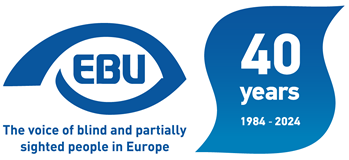By Chantal Le Soliec, Confédération Française pour la Promotion Sociale des Aveugles et Amblyopes – (CFPSAA)
Visually impaired people love the cinema and enjoy it as much as their French fellow citizens! However, audio description, for these people, is an essential parameter for a good understanding of a film. In France, for a long time, audio description only concerned a small percentage of films and the quality was not always good.
Today, we are seeing real progress with a growing number of audio-described films. Blind and partially sighted people have made their voices heard and our associations have worked with public authorities and film professionals to make audio description an essential part of film production and to improve its quality. The CFPSAA has, in particular, highlighted the need for audio description by creating the "Marius de l'Audiodescription" prize which aims to reward, according to a jury composed of visually impaired users, the best audio description on a list of films corresponding to those competing for the "César" awards of French cinema. This event, which was held for the third time in 2020, has raised awareness among film professionals.
Today, there are positive developments on the subject:
The CNC (Centre National du Cinéma), which supports our approach, has decided to set up an observatory dedicated to monitoring audio description. This observatory should be the guarantor of good practices in terms of quality. Moreover, since January 1st, 2020, all producers who apply for financial approval from the CNC are subject to an obligation of accessibility, and therefore of audio description and audio-subtitling, of their productions.
The CSA (Conseil Supérieur de l'Audiovisuel), for its part, is in the process of finalizing a charter that will take the form of a guide of good practices for the accessibility of productions and quality audio description.
Finally, France Télévision has just published a document that reflects its desire to improve the quality of the audio description that accompanies the programs broadcast on all its channels.
So there is real progress, but the issue of audio description remains intact and our networks, which remain vigilant, will continue to support all these initiatives as closely as possible to their implementation.

